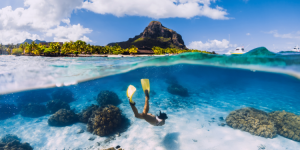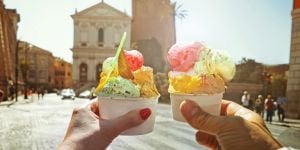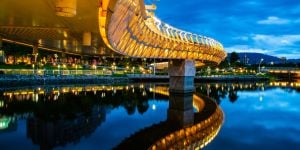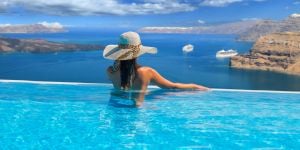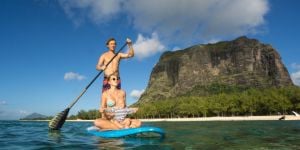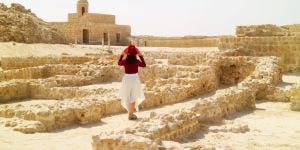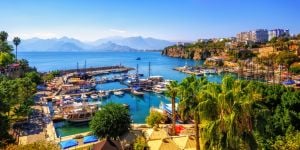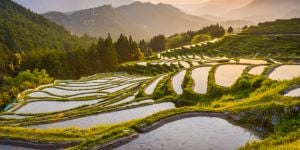
It is already late spring: the days have lengthened in the Northern Hemisphere, the sun is out and the summer holiday period is upon us. This year, however, everything is different because the global health crisis requires us to change habits. Many countries have started loosening the lockdown, but that doesn't mean we can move freely around the holidays or resume life as we left before COVID-19. So whether you’re in the Northern hemisphere and wanting to enjoy the sunshine or are thinking of taking some time off after the crisis, here are some ideas!
The resumption of tourism activities is gradually taking place and the authorities are adapting the regulations according to the progress of the infections. What will become of the summer holidays? If we used to be able to allow ourselves the luxury of packing and leaving, this year we most certainly will have to review our plans.
Having no certainty of being able to travel abroad, we might want to enjoy the beauty of our host country instead. Green light then to discover hidden jewels that we had previously snubbed, to explore nature trails, and solo tourism.
Social distancing obviously remains a crucial measure to avoid the spread of the coronavirus and this is why the optimal solution seems to be to organize holidays in nature rather than family gatherings.
This summer it will also be important to support small structures, perhaps family-run businesses to prevent them from disappearing. Therefore, visiting rural villages, farmhouses and farms with animals could be an option. Why not enjoy some time in the mountains, or organize bicycle or motorbike excursions?
For sun and sea lovers, the regulations are not yet certain even if Italy, for example, has set basic rules. Bathers will not be able to stay on the shore, the social distancing will also be maintained in the water and in this regard some establishments plan to install floating platforms, accessible to a very limited number of people, equipped with sunbeds. Some regions have suggested the use of anti-dismantling bracelets.
Most of the free beaches will only be accessible to a limited number of people at a time and at the entrance there will be signs in different languages to indicate the behavior to be kept, for example a distance of at least one meter between people and the obligation to place the umbrella at predetermined points.
Reservations are required for the bathing establishments, the umbrellas will be numbered and placed at a distance of 5 meters from each other, the sunbeds disinfected after use. The pools will remain closed. To avoid queues, payment will be made by card or via app.
As for France, Prime Minister Edouard Philippe announced on May 14 that the French will be able to enjoy their holidays in July and August while moving within the national territory.
Paris is still in isolation and the Eiffel Tower and the Louvre are currently inaccessible but small museums and other attractions are starting to reopen. In the Pays de la Loire region, the municipalities of Pornichet and La Baule are gearing up to reopen the beaches, as well as Finistère in Brittany.
These holidays will also be the right time to discover the rich historical and cultural heritage of the Hexagon and in this regard tourism operators have launched the #CetEteJeVisiteLaFrance (This summer I will visit France) operation on social networks.
The French government looks forward to the opening of most tourist attractions by June 21, in order to start the tourist season.
It is well known how much the French love to spend their holidays on a camping trip. Will they have to give it up? Maybe not. At the end of April, professionals in the sector presented a protocol to the authorities to secure this type of holiday. The measures to be taken include: safety distance in common areas, limited access to children's play areas, use of protective masks, and less services to the public to avoid grouping people.
The Algarve tourist office in southern Portugal reports that three quarters of reception facilities are expected to reopen by the second half of July.
The beaches could be accessible to the public starting June. In the coming days, the Portuguese Environment Agency will establish the health measures to be taken to ensure safe bathing.
If you are lucky enough to live near the sea and you love sports, know that from May 4th the beaches are open for swimming and for kitesurfing. Access is currently only allowed for these two activities. Recreational fishing is also allowed.
All over the national territory, museums, art galleries and monuments will reopen from May 18th.
In the United Kingdom, after the Prime Minister loosened the restrictions on May 17th, hotels, resorts and campgrounds are setting off for the summer reopening scheduled for July.
Are you a lover of nature and the English hills? Then go visit the Cotswolds with its picturesque villages and historic residences, traditional pubs and beautiful gardens. If you are fond of antiques you will also find many shops to shop.
Venture out to discover areas not frequented by mass tourism such as the Shropshire Hills where you can have relaxing family picnics and walks in the countryside.
The Shropshire Hills are located in the South of England, on the border with Wales and are part of the Area of Outstanding Natural Beauty, a rural area protected by great landscape and naturalistic value. On the same wave you can also visit the Blackdown Hills which host a vast expanse of lush hills, farms, typical villages and a rich flora and fauna. Some services may be closed to the public so check online before traveling.
At the moment, the British Government only authorizes day trips to open spaces, traveling by private vehicle. It is not allowed to leave the place of residence to go to spend the holidays in the second house.
As for London, the attractions and public places remain closed so it is not yet possible to organize an excursion to the English capital, but do not worry because through the Virtually London guide, available on the Visit London website, you can participate in guided tours, visit Westminster Abbey, attend and live events and shows, take virtual tours in museums and art galleries.







